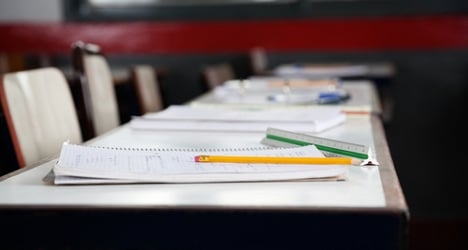The bill, which would see 100,000 substitute teachers given permanent contracts and extra funds designated for teacher development, was approved by the cabinet in March.
But unions argue the reform is “unfair” as many more substitute teachers will be excluded.
Marches will take place in Rome, Aosta, Milan, Bari, Catania, Palermo and Cagliari. Students are also expected to join the rallies.
The so-called Good School bill, which still needs to go before parliament, is also designed togive schools greater autonomy by making it the school head's job to handpick teachers, and bring greater transparency to the system, with curriculum vitae and school financial records made public online.
Teachers would also be given a €500 bonus each year to be spent on cultural activities, such as tickets to a concert.
Permanent contacts will be rolled out for 100,000 substitute teachers by September 2015 if the bill goes through, with others following for 23,000 nursery school teachers a year later.
Education Minister Stefania Giannini was quoted by Ansa on Monday as saying that she was "frankly perplexed" by the reasons for the strike.
She added that the reasons given by those protesting against the reform "are absolutely foreign to what we want to do with the Good School, which is(fostering) scholastic autonomy and strengthening the education on offer".
The last strike was held on April 24th, after which protesters vowed to continue their fight until the bill is dropped. The next strike is due to take place on May 12th.
Susanna Camusso, leader of trade union CGIL, has said the reform "favors the richest and divides the precarious."
In November last year the European Court of Justice ordered Italy to regularize substitute teachers who had worked for over 36 months on precarious, short-term contracts. Italian media at the time put the number concerned at 250,000.
Renzi, who has made the school reform one of the cornerstones of his mandate, said pre-school children would get English lessons and history of art and music would return to the curriculum.



 Please whitelist us to continue reading.
Please whitelist us to continue reading.
Member comments